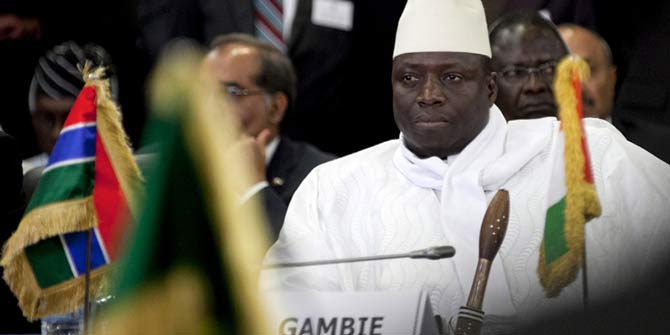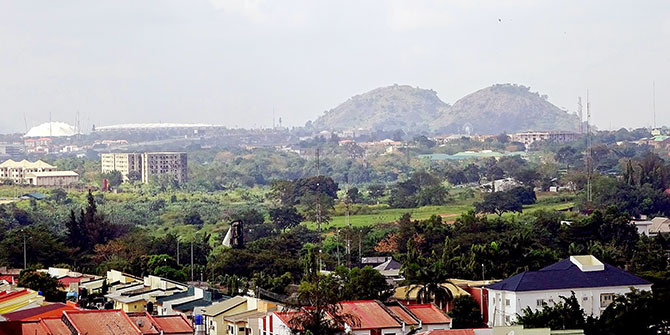In 1977, R W Johnson’s best-selling How Long Will South Africa Survive? provided a controversial and highly original analysis of the survival prospects of apartheid. Now, after more than twenty years of ANC rule, he asks the question again. Ján Michalko finds his pronouncements almost prophetic.
Reading R W Johnson’s How Long Will South Africa Survive? The Looming Crisis at the end of May 2016 is like seeing history repeat itself; or prophecy being fulfilled. The causes and consequences of failed liberation, which Johnson describes in his book, manifested themselves in a span of just a few days. We witnessed exorbitant amounts of public finance spent on cars for Jacob Zuma’s wives. There were reports of oil stocks sales giving a healthy profit to someone who is not the South African poor. But we also saw a court ruling on spy tapes, land expropriation bill, changes in ANC provincial leadership in KwaZulu-Natal, violent protests, racism, sexism, and a dose of Mandela and Tutu. We had it all. So if there was any doubt in your mind about the credibility of the claims and predictions laid by this emeritus professor and Rhodes Scholar, the current events may just counter these.
 The book’s key argument is rooted in Johnson’s original analysis from the identically-titled piece he wrote in 1977. Then, he argued that the apartheid regime would see its demise because of international economic pressures. Fast-forward to 2015 and Johnson maintains that: “The iron law of South African history is that if this inflow [of foreign investment] is seriously threatened not only can no government survive, but an interruption of this flow tends to produce generalised regime crisis which is solved only by the installation of a new regime” (15). And it is this journey towards the abyss that he outlines here. But as South Africa approaches the point of no return, the key question of how long it will take remains unanswered, as Johnson refuses to look into the political crystal ball.
The book’s key argument is rooted in Johnson’s original analysis from the identically-titled piece he wrote in 1977. Then, he argued that the apartheid regime would see its demise because of international economic pressures. Fast-forward to 2015 and Johnson maintains that: “The iron law of South African history is that if this inflow [of foreign investment] is seriously threatened not only can no government survive, but an interruption of this flow tends to produce generalised regime crisis which is solved only by the installation of a new regime” (15). And it is this journey towards the abyss that he outlines here. But as South Africa approaches the point of no return, the key question of how long it will take remains unanswered, as Johnson refuses to look into the political crystal ball.
The book often reads as a good crime novel or a House of Cards-inspired political fiction; a page-turner, full of stories of manipulation, corruption, and political calcul, which have infiltrated every nook of government. As Johnson himself points out, the events evoke the imagery of Chicago-style gangsterism transposed into the city of Durban and into KwaZulu-Natal. The high degree of familiarity and personal investment in the narrative aids the impression of the book being a work of fiction, maybe at times at the expense of academic rigour. The fact that it captures the reality of South African politics, however, quickly leaves a sense of disbelief and despair with the reader. The descriptions of maladministration and mismanagement, of self-interest and self-aggrandisement, of negligence and ineptitude are a strong indictment of the state and the ANC-led Tripartite Alliance. According to Johnson, the ANC has created a beast that it can no longer control and has unleashed a feeding frenzy of massive proportions.
The author’s consequent vision for the country is based on his reading of the global power constellations and domestic political economy. The analysis is firmly neo-liberal and problematically unquestioning of the Bretton Woods institutions, their track record and policies. Although less dramatic in style, the latter part of the book is, nonetheless, equally dramatic in its impact. Two scenarios that Johnson outlines for South Africa lead towards the same outcome: an IMF-bailout and regime change. It might then appear strange that he claims to be optimistic about the country’s future. His expectation that after two extreme regimes the next phase must be a political equilibrium could be labelled as optimistic, but slightly cynical as well.

Most of the book’s attention is devoted to Zuma’s presidency, under whose leadership the downward trajectory of South Africa gained unprecedented speed. The presidential portrait that Johnson paints is interestingly mixed. On one hand he is an “only just literate Zulu tribesman” (105), whom the world sees as a “buffoon;” a president with no political vision or direction; a man with a life-style that his salary can hardly sustain; a man who is shrewd and skilful at keeping the ANC factions and provincial barons happy, purging his critics in order to prolong his access to the state resources. But at times, he is described as a victim – a man who had been targeted by his predecessor with all of the power of the state. However, it would be a misunderstanding to see the book as a charge against Zuma. At its core, it is much more a critique of the ANC leadership of the early 1990s, who set up a system that was destined to fail.
The reviewers mentioned on the book’s cover hail it as “provocative,” and “strikingly original.” The words of praise might seem slightly hyperbolic, although certainly expected for an author of such calibre and proven prophetic insight; but it must be acknowledged that the prominence of ethnicity and tribalism in Johnson’s analysis is certainly not common in most literature. His attention to Zulu masculinities and culture, and the people’s sense of importance and superiority does provide insightful explanatory context for much of the behaviour of the ANC leadership. And so does the sense of South African exceptionalism. Taking on Nelson Mandela and his legacy, and indicting everyone and anyone in power, is certainly a provocative move, from which both academic and lay audiences can greatly benefit.
How Long Will South Africa Survive? The Looming Crisis. RW Johnson. Jonathan Ball Publishers. 2015.
Ján Michalko is a doctoral researcher at SOAS. Follow him on Twitter @MichalkoJan.
The views expressed in this post are those of the author and in no way reflect those of the Africa at LSE blog or the London School of Economics and Political Science.





This book goes beyond provocation and fair analysis. It is a reflection of the author’s prejudices and biases of all things African. That South Africa will survive as a nation is pure a function of the will of the majority of the population. My guess is the majority who shared tears and blood to free their country from the yoke of apartheid and colonialism will not allow the nation to be destroyed or captured. The author is free to highlight on the challenges facing the nation especially during the administration of Zuma. But these challenges are transitory in nature as the country is still a young nation and democracy. Nor are these challenges unique to South Africa, they part and parcel of political ecosystem around the globe. South Africa is an ongoing project and it will grow from strength to strength despite the challenges of the present. There is no room for despair and nor looming crisis in the horizon.
I have not yet read this book, but what strikes me in the argument outlined in this review is the idea that a highly corrupt president acts as a brake on foreign investment. This is not in itself true, and there are many steps of the argument that have to be made to sustain it. It could be that the system the ANC has put in place will a) lead to a decline in FDI and b) lead to an economic abyss (two things that, as the reviewer says, are not necessarily connected). But even then, the key point for me is whether polemics concerning corruption sustains that argument. I will read the book and see if that aspect really stacks up.